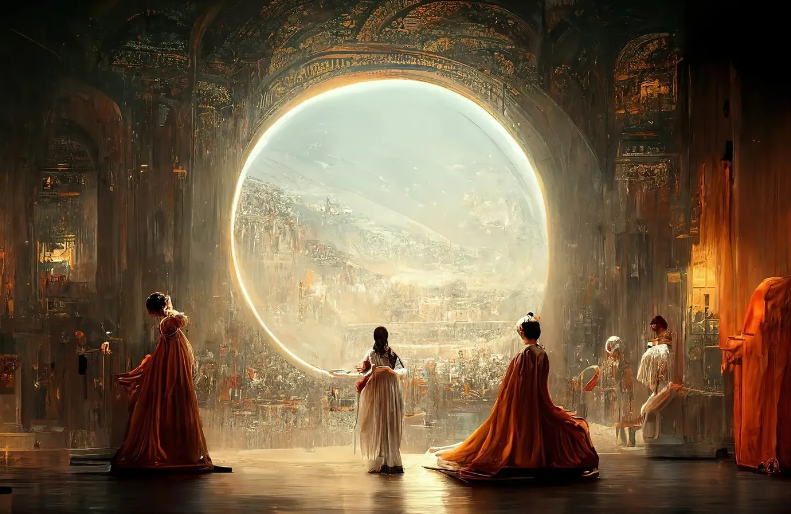
A recent ruling from the US Copyright Office has established a precedent that sparks important inquiries into the involvement of artificial intelligence in visual arts.
The verdict, issued by the Copyright Office's review board, revolves around the copyright eligibility of an award-winning piece of AI-generated art, Théâtre D'opéra Spatial, which had clinched the top spot at the 2022 Colorado State Fair's annual art competition.
The Guardian reports that the ruling explicitly states that Théâtre D'opéra Spatial cannot be copyrighted because non-human entities predominantly created it.
This decision has far-reaching implications for artists who employ AI tools in their creative processes and the broader discourse on copyright and AI's role in shaping the creative landscape.
Making 'Théâtre D'opéra Spatial'
Théâtre D'opéra Spatial, a visually stunning work of art, was conceived by artist Jason Allen. However, what sets this piece apart is the central role played by artificial intelligence.
Allen leveraged an AI platform called Midjourney, an AI tool designed to generate images based on textual prompts.
In his defense, Allen argued that he had exerted significant creative control over the AI-generated image by entering a series of prompts, adjusting scenes, selecting focal points, and dictating the image's tone.
"How interesting is it to see how all these people on Twitter who are against AI-generated art are the first ones to throw the human under the bus by discrediting the human element! Does this seem hypocritical to you guys?" Allen addressed some critics last year.
This intricate collaboration between humans and machines led to a fascinating artistic creation that challenged conventional notions of authorship.
Still, it was not enough to sway the US Copyright Office's review board, which ruled that the work's "traditional elements of authorship" had predominantly originated from a machine.
Consequently, the office refused to register the artwork, citing a long-standing principle that copyright protection "excludes works produced by non-humans."
Read Also : Microsoft's AI to Help Improve Windows? Copilot to Bring 'Next Era' of the Computer Software
The Legal Landscape for AI-Generated Art
The Théâtre D'opéra Spatial case is part of a broader trend where legal bodies grapple with the intricate question of who should hold copyright over AI-generated content.
In 2018, a widely publicized case saw a photograph taken by a macaque declared public domain, emphasizing that under current copyright law, animals and machines have limited claims on copyright protections.
This ruling underscores human authorship's importance in securing copyright protection, raising questions about the potential stifling of creativity in an age where AI tools are increasingly integrated into creative processes.
The Battle for Copyright Registration
Jason Allen's quest to register his work with the Copyright Office was anything but straightforward.
He diligently detailed the extent of his creative involvement with Midjourney, specifying that it took at least 624 text prompts and input revisions to bring the image to life.
Despite his efforts, the Copyright Office contended that while Allen's alterations with Adobe Photoshop constituted original work, the portions generated by AI couldn't be copyrighted.
Stay posted here at Tech Times.
Related Article : Philippine Media Giant Introduces the Country's First AI Sportscasters; Draws Flak Online

![Apple Watch Series 10 [GPS 42mm]](https://d.techtimes.com/en/full/453899/apple-watch-series-10-gps-42mm.jpg?w=184&h=103&f=9fb3c2ea2db928c663d1d2eadbcb3e52)



